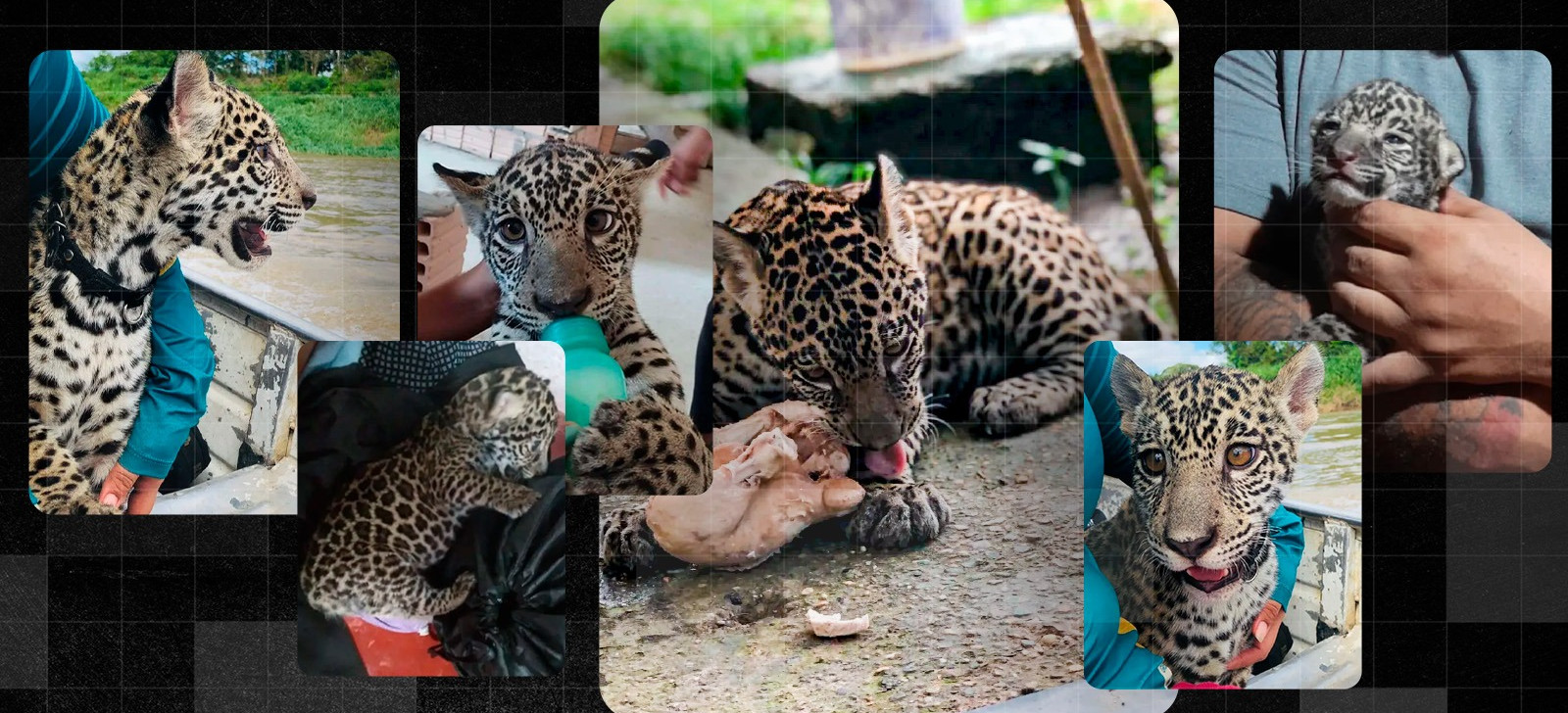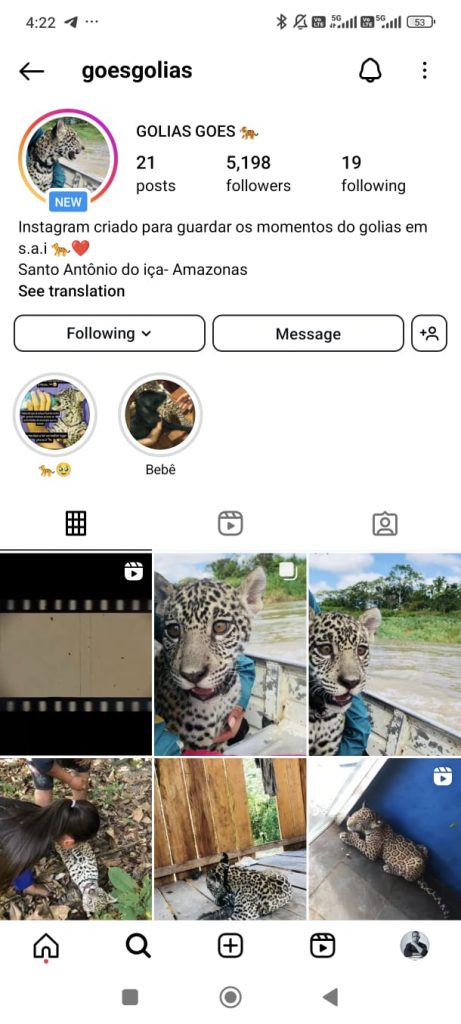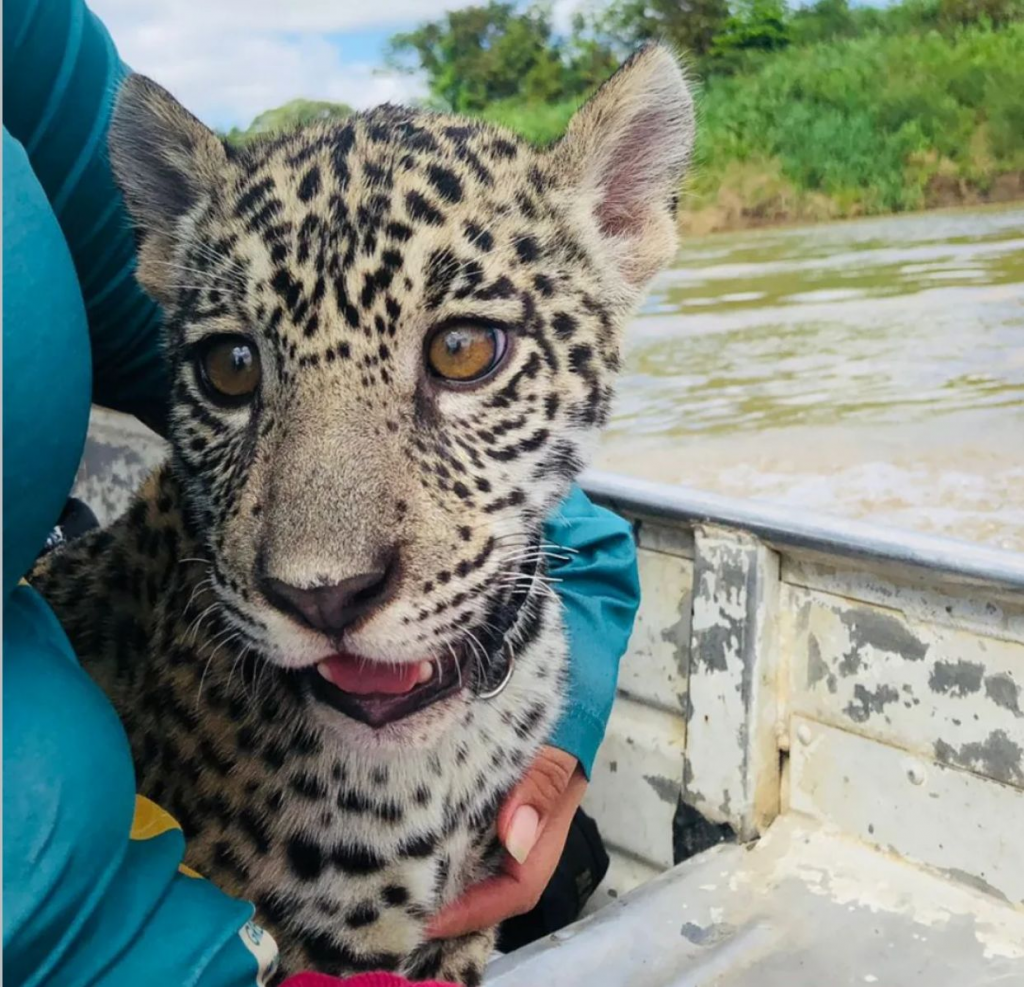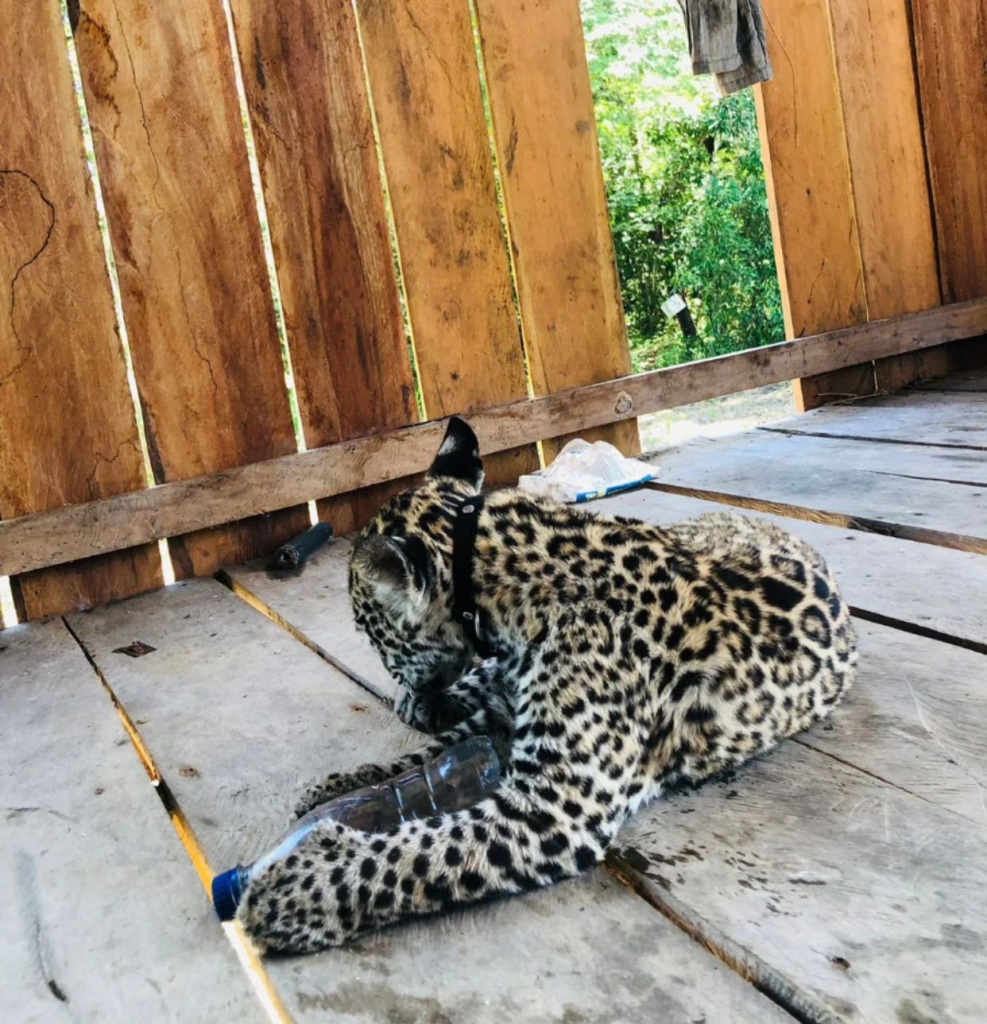Family shows routine of jaguar raised at home in Amazonas
09 de February de 2025

By Cenarium
MANAUS (AM) – A family from the municipality of Santo Antônio do Içá (AM), located 879 kilometers from Manaus, created an Instagram profile – @goesgolias – to showcase the daily life of a jaguar cub, named “Golias.” The profile has existed since last Thursday, 6th, and had 5,198 followers as of this Saturday afternoon, 8th.
The Environmental Crimes Law (Law No. 9,605/1998) prohibits the keeping, possession, transportation, commercialization, and use of wild animals without authorization. CENARIUM accessed the profile on Friday, 7th, and questioned the Ibama (Brazilian Institute of the Environment and Renewable Natural Resources) Superintendence in the State of Amazonas.


The animal was rescued by a team from the Amazonas Military Police (PM-AM) on Tuesday, 4th, following anonymous reports. After that, he was placed under the care of the municipality’s Secretariat of Environment (Semat).
On Golias’ profile, the images portray the care provided to the wild animal, showing details of his routine and including pictures with family members. A family member who was taking care of the cub wrote: “Now, Golias has been handed over to the authorities of SAI [Santo Antônio do Içá]. The municipality will cover his expenses. Now we just have to wait for Ibama to come and get him.”
In a statement released on Wednesday, 5th, Ibama reported that Golias is in good health and exhibits docile behavior. Authorities emphasize that keeping wild animals without proper authorization is considered an environmental crime, punishable by six months to one year of detention, in addition to a fine.

The infraction is outlined in Article 29 of Law No. 9,605, dated February 12, 1998, which addresses environmental crimes and offenses against fauna. According to the legislation, the crime occurs when a person “kills, persecutes, hunts, captures, or uses specimens of wild fauna, native or in migratory routes, without proper permission, license, or authorization from the competent authority, or in violation of the obtained authorization.”
According to the law, the same penalties apply to those who “prevent the reproduction of fauna without a license, authorization, or in violation of the obtained authorization.” See what the law states:


